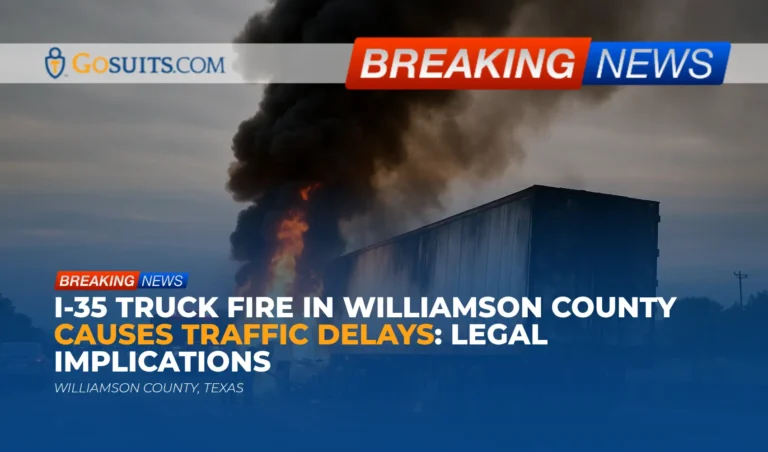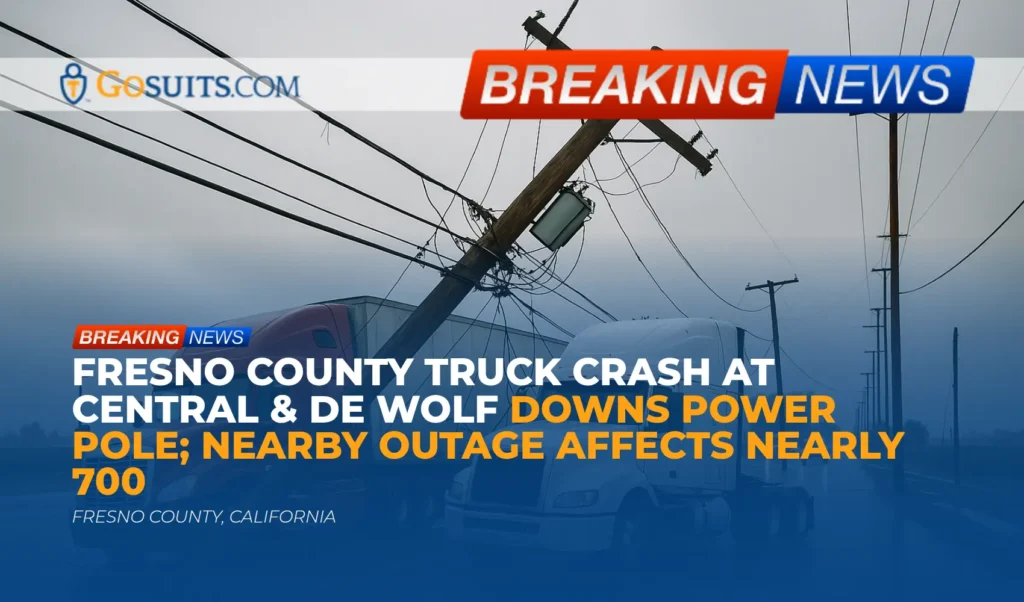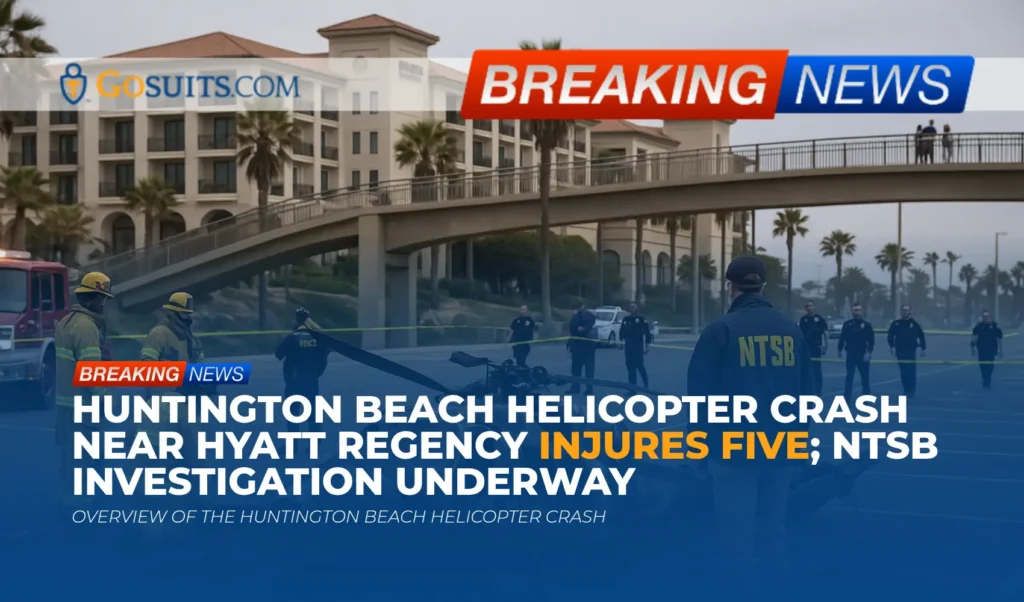Early Tuesday morning, an 18-wheeler carrying a load of boneless beef brisket caught fire on I-35 between Jarrell and Georgetown, Texas, causing significant traffic delays. Jarrell Fire/Rescue responded to the scene in the northbound lanes, just south of the Ronald Reagan Boulevard bridge, around 5 a.m.
Reports indicate that the truck driver noticed a potential problem with the trailer and pulled over to investigate. Upon inspection, a fire was discovered in the brakes, quickly engulfing the rear of the trailer. Firefighters were able to control the blaze, and thankfully, no injuries were reported. The truck, which was en route to Canada, sustained considerable damage.
The Texas Department of Transportation (TxDOT) temporarily closed all northbound lanes at Ronald Reagan Boulevard. While the left lane was later reopened, two main lanes and the right shoulder remained closed for several hours as crews worked to remove the damaged trailer and its cargo. The Williamson County Sheriff’s Office and Jarrell Police Department assisted with traffic control, and SAS Towing handled the removal.
Potential Legal Implications of Commercial Vehicle Fires
While this particular incident resulted in no injuries, commercial vehicle fires can have severe and even fatal consequences. Understanding the potential legal aspects of such events is crucial for anyone involved, directly or indirectly.
Negligence and Liability
In cases like this, a thorough investigation is often necessary to determine the cause of the fire. Several factors could contribute to a commercial vehicle fire, including:
- Mechanical Failure: Faulty brakes, as initially suspected in this incident, are a common cause. Other potential mechanical issues include problems with the engine, electrical system, or fuel lines.
- Improper Maintenance: Neglecting routine maintenance can lead to mechanical failures and increase the risk of fire.
- Overheating: Overloaded or poorly ventilated cargo can sometimes cause overheating and ignite flammable materials.
- Driver Error: Actions like improper use of brakes or neglecting warning signs can contribute to fires.
- Cargo Issues: Improperly secured or labeled hazardous materials can ignite.
Determining the cause of the fire is essential for establishing liability. Depending on the circumstances, potentially liable parties could include the truck driver, the trucking company, the vehicle manufacturer, or a maintenance provider. If negligence is found to be a factor, victims of the incident, whether directly involved or affected by the resulting traffic delays, may have grounds for a personal injury claim.
Insurance Considerations
Commercial vehicles are typically insured under policies that cover property damage and liability for injuries caused by accidents. After a fire, insurance companies will conduct their own investigations to determine the cause and assess the extent of the damages.
Navigating the insurance claims process can be complex, especially when multiple parties are involved. It’s important to understand your rights and responsibilities and to gather all relevant documentation, such as police reports, fire department records, and photographs of the scene.

Importance of Safety Regulations
Commercial trucking is heavily regulated by both federal and state agencies. These regulations are designed to ensure the safety of drivers, passengers, and the general public. Regulations cover areas such as vehicle maintenance, driver training, hours of service, and cargo securement. When these regulations are violated, it can increase the risk of accidents, including fires.
Potential Impact on Affected Individuals
Even though no one was directly injured in the I-35 fire, incidents like this can still have a significant impact on individuals. Drivers stuck in traffic delays may experience:
- Lost Time: Delays can cause missed appointments, work disruptions, and other inconveniences.
- Increased Stress: Being stuck in traffic, especially in hot weather, can be stressful and frustrating.
- Economic Losses: Businesses may experience losses due to delays in deliveries or service calls.
While these impacts may not always lead to legal claims, they highlight the broader consequences of commercial vehicle accidents.
Future Prevention
Preventing commercial vehicle fires requires a multi-faceted approach. This includes:
- Regular Vehicle Maintenance: Trucking companies should have a comprehensive maintenance program in place to identify and address potential problems before they lead to accidents.
- Driver Training: Drivers should be properly trained to inspect their vehicles, identify potential hazards, and respond appropriately in emergency situations.
- Compliance with Regulations: Trucking companies must adhere to all federal and state regulations related to vehicle safety and driver operations.
- Technological Advancements: Utilizing technology such as advanced braking systems and fire suppression systems can help prevent and mitigate the effects of fires.
By taking these steps, the trucking industry can reduce the risk of commercial vehicle fires and improve the safety of our roadways.

Commentary from Gosuits Williamson County, Texas Personal Injury Attorney
The recent 18-wheeler fire on I-35 in Williamson County serves as a stark reminder of the potential dangers associated with commercial vehicle operation. While we are relieved that no one was injured in this particular incident, it underscores the importance of diligent safety practices and regulatory compliance within the trucking industry. At Gosuits, we understand the complexities surrounding personal injury cases arising from vehicle accidents, and we advocate for those impacted by such incidents. It’s vital to conduct thorough investigations to determine the root cause of these accidents and to hold responsible parties accountable, thus ensuring safer roads for our community.






